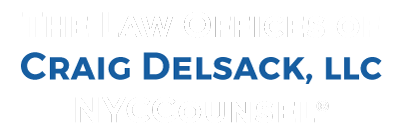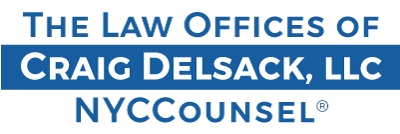Business Formation & Governance
Starting a business in New York requires selecting a business structure (like an LLC or corporation), registering with the appropriate state authorities, obtaining any necessary licenses and permits, and creating necessary internal documents such as bylaws, shareholder agreements or operating agreements. Speaking to a lawyer is beneficial to ensure all legal bases are covered.
New York law requires New York limited liability companies to adopt a written operating agreement — governing a limited liability company’s internal affairs, management, members’ rights and obligations, any “preferred” classes of membership, and how the LLC will be operated. This document governs a limited liability company’s internal affairs and operations, members’ roles, management and decision-making, rights and obligations of the members, and any “preferred” classes of membership.
The CTA obligates certain businesses to disclose ownership information to FinCEN. Ignoring this requirement could lead to fines or legal consequences. Consulting with a legal advisor can help you remain compliant.
Employment Law
Yes, provided that they are reasonable in scope, duration, and geography, and serve a valid business purpose. A legal assessment can determine whether such terms are enforceable in your specific context.
Terminating an employee may be considered wrongful if it violates discrimination laws, employment contracts, or retaliates against legally protected actions. If you suspect this has happened, it’s best to consult a legal professional.
No company is too small to have an employee handbook — it sets forth the company’s expectations of its employees, codes of conduct, acceptable use of technology and Generative AI, protecting company trade secrets and confidential information, and explaining human resource matters, benefits, vacation policies, prohibition on sexual harassment and discriminatory behavior, and disciplinary procedures. It helps standardize operations and can offer legal safeguards.
Intellectual Property & Technology
Safeguarding your startup’s IP typically involves registering trademarks, copyrights, or patents, and using NDAs to preserve the confidentiality of your company’s confidential or proprietary information and trade secrets. Legal guidance helps you implement the right protections for your situation.
It’s crucial to evaluate the claim’s validity and respond promptly. Legal support can help you manage risks and avoid further liability.
Yes, questions around ownership, licensing, and originality may arise. Getting legal advice ensures you handle such content appropriately.
Not-for-Profit Organizations
The process includes incorporating under state law, obtaining required New York state certifications, applying for federal 501(c)(3) status, and meeting various compliance and governance standards. Legal support can simplify and expedite this process.
Organizations need to file annual reports, uphold governance standards, and adhere to fundraising laws. Regular legal reviews are helpful for staying on track.
Real Estate & Commercial Leasing
It depends on whether the terms are to be landlord favorable or tenant favorable. Important aspects include the lease term, renewal options, rent increases, maintenance and repair obligations, and termination clauses, to name a few. Certain businesses may need to negotiate clauses for their particular use of the premises. A legal review can help you spot unfavorable terms before committing.
Absolutely. Many lease provisions are open to negotiation. Legal assistance can help you obtain terms that better suit your operational needs.
It’s a clause allowing a lease guarantor’s obligations to terminate, provided certain conditions are met (albeit the underlying tenant may remain obligated under the lease). It’s common in New York’s commercial real estate market and may be negotiated. A legal review can help you spot unfavorable terms before guaranteeing the tenant’s obligations under a commercial real estate lease.
Dispute Resolution & Litigation
Understand what’s being requested and your obligations. Consult a lawyer promptly to ensure your rights are protected and the response is appropriate.
These include mediation and arbitration, which are generally quicker and less expensive than court proceedings. They’re often used to settle disputes efficiently.
Litigation is typically a last resort when informal resolutions and negotiations fail. A lawyer can evaluate your position and guide you through the process.
It varies. It’s essential to verify deadlines early with legal help. Here is a list of some common actions and time limitations (which may change):


Corporate & Business Law
You’ll need to choose a legal structure, register your entity, generally obtain an EIN, comply with applicable state rules and regulations, and establish any required internal protocols to comport with your entity’s structure. A legal professional can make sure everything is correctly executed.
If you manage several businesses or wish to isolate liabilities and streamline control, a holding company could be a smart strategy. Legal advice helps determine if it suits your situation.
Technology, IP & Internet Law
Trademark and copyright registrations, along with confidentiality agreements, help protect your work. For the most part, digital content created by Generative AI is not copyrightable. An attorney can tailor the protections to your digital business or product.
Media & Entertainment Law
It’s a contract that gives permission to use someone’s life story, name, image or likeness in connection with a book, film, theatrical production or other exploitation. A life rights agreement is essential for producers creating content based on real individuals, to avoid claims of invasion of privacy or violation of a person’s commercial rights.
Registering copyrights and trademarks, prosecuting patents, and using contracts or licenses helps you control and monetize your work. Legal consultation helps ensure your rights are enforceable.
Cannabis Business Law
You’ll need to apply for licenses, follow state and local regulations, and meet proximity and zoning requirements. Given the complexity, legal guidance is vital.
Depending on the description of the services or goods and classifications, federal trademark protection may be limited. New York allows for certain state-level registrations. An attorney can help you explore your options and create strategies to help you ensure your “cannabis” brands are protected and can be exploited optimally.

